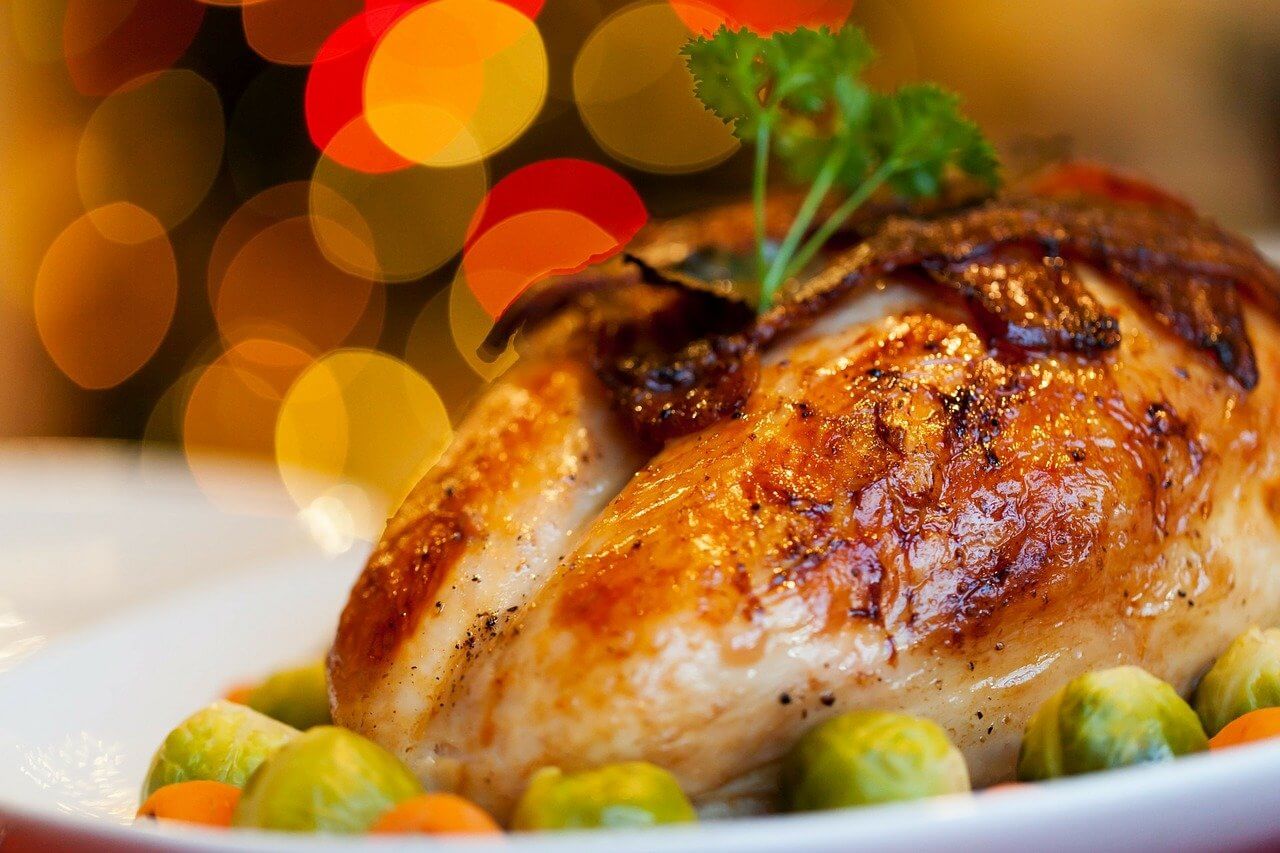Food Coma: The Truth About Turkey and Tryptophan

Many Americans partake in the annual Thanksgiving tradition of stuffing their faces with turkey and trimmings and then parking on the sofa to sleep off the inevitable food coma.
Turkey is packed with tryptophan and is usually blamed for the drowsiness we experience after consuming a massive Thanksgiving meal. But contrary to popular knowledge, plenty of other food is loaded with tryptophan, too.
“Turkeys get a bad rap,” said Jeanne Piga-Plunkett, registered dietitian and co-coordinator of the Dietetic Internship Program at The University of Texas Health Science Center School of Public Health. “They have high levels of tryptophan, but so do nuts, soy beans, cheese, lamb, beef, pork and chicken.”
Tryptophan is an essential amino acid and the key ingredient in making serotonin, a neurotransmitter responsible for elevating and balancing people’s moods. When tryptophan synthesizes serotonin, the chemical reaction produces the hormone melatonin, which regulates people’s sleep patterns.
But consuming tryptophan alone doesn’t cause sleepiness. It’s the combination of tryptophan and carbohydrates in large amounts.
“During Thanksgiving, people eat 300 to 400 grams of protein without hesitation,” said Nicolaas Deutz, a nutrition expert and director of Texas A&M’s Center for Translational Research in Aging and Longevity. “That’s a huge amount of tryptophan and way higher than what people normally consume, so the body has to deal with that. On top of that, there’s a lot of carbs eaten on that day.”
When people gobble down their meals, the digestive system breaks down simple carbohydrates—like those found in mashed potatoes, cranberry sauce, and pumpkin pie—into sugar that enters the bloodstream. Elevated blood sugar stimulates the production of insulin, which helps clear the way for tryptophan to travel from the bloodstream to the brain.
Tryptophan is akin to the solitary passenger in the overcrowded TSA line at the airport the day before Thanksgiving. Large families, wrangling luggage and children, are the other more abundant amino acids, pushing and shoving to get through the same packed checkpoint. Insulin acts as the TSA pre-check that allows those large families of amino acids to breeze through security. By diverting the TSA pre-check passengers, airport congestion is alleviated and the tryptophan passenger can travel more easily to the designated gate.
Behavior also plays a role in the Thanksgiving food coma.
People often ignore the internal cues that tell them to eat earlier in the day because they’re anticipating a delicious Thanksgiving feast, Piga-Plunkett said.
“Thanksgiving tends to lead to overindulgence,” she added. “We give ourselves permission to eat and celebrate. This is a special time.”
By the time people sit down at the dinner table, they’re hungry and wolf down plates of food. The brain takes approximately 20 minutes to register that the stomach is full, but people often eat so quickly that the brain doesn’t have enough time to tell the body it’s satiated. So the body powers down into “rest and digest” mode.
To prevent Thanksgiving lethargy, Piga-Plunkett recommends eating slowly and consuming smaller portions.
| Food Loaded with Tryptophan | Milligrams |
| Whole Milk (per quart) | 732 |
| 2% Milk (per quart) | 551 |
| Canned Tuna (per ounce) | 472 |
| Turkey, Skinless, Boneless, Light Meat (per pound, raw) | 410 |
| Chicken, Skinless, Boneless, Light Meat (per pound, raw) | 238 |
| Oats for Oatmeal (per cup) | 147 |

